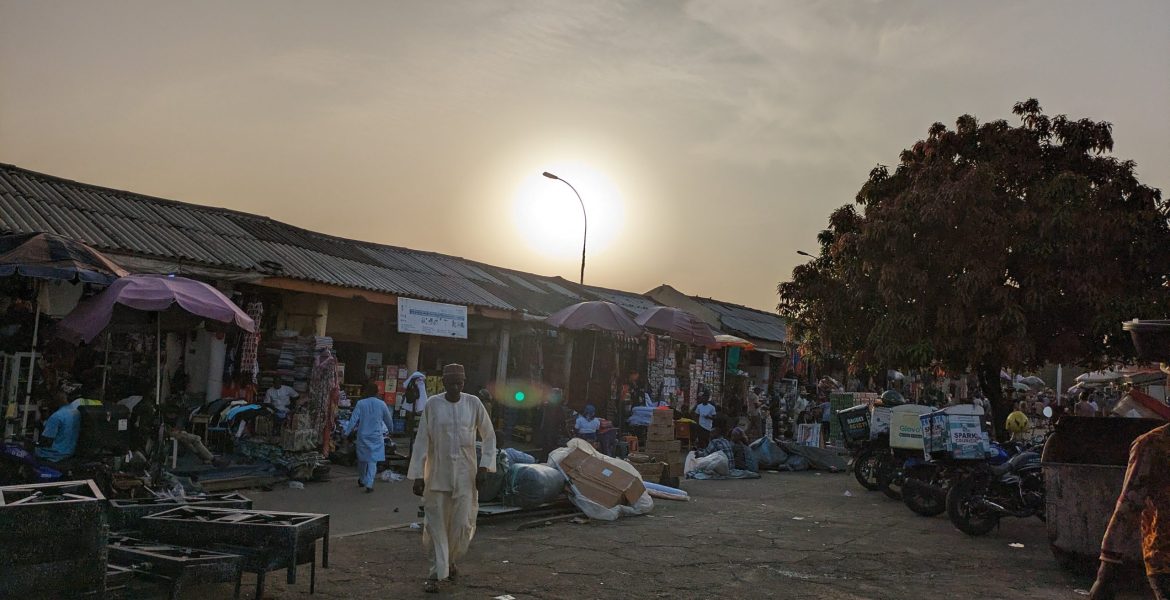
By Dr Michael E. Odijie
Michael Odijie argues for the strategic use of government procurement to drive industrialisation in Nigeria, suggesting that such an approach could effectively address the longstanding challenges faced by the nation’s industrial policies.
Nigeria is faced with the task of industrialisation, namely building production capability in manufacturing sectors. The absence of such capability is linked to most of the problems faced by the country – notably a lack of jobs. The history of Nigeria’s industrial policy (which are policies designed by the government to build and upgrade domestic productive capability) resembles a broken record: a specific strategy is repeated over and over again, despite repeated failure. In the target sectors, importation is either completely banned or restricted through licensing and quota allocation. Licences and quotas are distributed only to importers that can provide evidence that they are building domestic production capability. Import restriction is a form of infant industry protection in which the domestic market becomes the basis for domestic producers to build replacement products.
“The history of industrial policies in Nigeria…resembles a broken record: a specific strategy is repeated over and over again, despite repeated failure.”
In the context of Nigeria’s sugar production, for example, the 2013 Nigeria Sugar Master Plan restricted the importation of raw sugar to only three sugar factories with domestic production capacity (Dangote, BUA and Golden Sugar). These factories are allocated yearly import quotas according to shortfalls in domestic production; they are required to gradually upgrade their production until each quota is phased out. This is similar to Nigeria’s policy on cement a decade earlier, as well as its rice production policy, with slight variations for other products. There are numerous problems with this policy format; such policies have only ever succeeded in cement production, where Nigeria is currently a net exporter.
The biggest defect of these policies is the accruement of benefits to neighbouring countries (particularly Benin) that deliberately act as a hub for re-exportation as soon as Nigeria institutes protection for any product. As soon as Nigeria imposed a huge import duty on rice, for example, Benin reduced its duty on rice and importation (90% of which was destined for Nigeria) imploded. The difference in customs duties on rice between Benin and Nigeria became significant (in 2015, Nigeria’s tariff on rice imports was set at 70%, while that of Benin was 12%), which made re-exportation attractive to both formal and informal operators. Hence, most of Benin’s rice imports, up to 30,000 truckloads per year, are routed via transit shipments through Niger to north-western Nigeria. The situation is similar for used cars (in which Nigeria has a policy), sugar, poultry products and all products in which Nigeria has created a deliberate protection policy for domestic production.
The cement policy succeeded partly because it is difficult to smuggle cement due to the delicate nature of transporting, handling and storing the product. Although Nigeria has banned the importation of poultry, a product that is relatively easy to produce, for almost 20 years, it is still not self-sufficient in poultry production because of the continuous smuggling into Nigeria of a huge volume of imported frozen chickens. It is self-harm to continue using such a policy tool, which effectively bans a product that can easily be transported into the country illegally. To continue with the import ban, as a tool for industrial policy, Nigeria must select products that are relatively difficult to smuggle and reduce its tariffs on other products to the level of Benin’s.
Another problem with the policy is that policy makers are not always able to adequately verify production capacity. It is therefore possible for bogus production capacity to be used as a basis for obtaining import quotas without resulting in an upgrade in production capability. This is also true of rice, cement, sugar, etc. In rice production, there have been cases of resold quotas, as some recipients of import quotas are not interested enough in the rice business to import, let alone produce, rice; therefore, the quota system becomes nothing but rent seeking. Even in sugar production, which has a bureaucratic component (the National Sugar Development Council, NSDC) with the expertise to verify production capacity, importers may still get away with overstating their production capacity to receive quotas. Furthermore, politically influential importers may be able to exceed their quotas without retribution. For example, following a midterm evaluation of the Nigeria Sugar Master Plan, the NSDC reported that some importers were abusing the system: they judged that “a particular Operator has serially violated the sugar quota allocation, importing more than was approved. This is unacceptable and must stop.”
Nigeria’s new industrial policy must go beyond restricting importation for domestic producers. This is a very flawed way of upgrading production capability, which is the most important task of industrial policy (rather than simply inducing domestic firms to produce). Simple protection might convince domestic producers to produce for the market, but as in the pharmaceutical industry, protection does not necessarily help to increase productive capability.
For a country like Nigeria, given the size of its population and government, procurement policies are the single best tool to link the source of demand to domestic upgrading of capability. For instance, the government could introduce a mandate requiring all public entities (from the presidency to the national assembly, ministries, states, etc.) and corporations to buy only cars made/assembled in Nigeria for official purposes, with the stipulation that Nigeria-made cars must meet a certain minimum quality standard to qualify for this provision. Such a move would crowd in investment and research on upgrading domestic automobile production to meet the quality standard (especially if incentives such as credit and other support were added to it), as government entities and corporations are the biggest buyers of new cars in Africa.
“For a country like Nigeria, given the size of its population and government, procurement policies are the single best tool to link the source of demand to domestic upgrading of capability.”
The government purchases enormous volumes of goods and services every year; even simple policies such as school feeding programmes can help upgrade production capability if tailored to do so and tied to the broader market. This policy needs to be targeted because the government is an important buyer of many everyday products in Nigeria. Why not target the demand to upgrade capability?
The requirement by the producers to sell and even export to private consumers will be crucial if procurement is to facilitate production upgrade in Nigeria. Procurement should not be an “enclave” activity that is disconnected from the broader market, as is currently the case for uniform production, in which the producers of NYSC uniforms (with more than 300,000 produced every year) and police/soldier garments are dedicated garment factories. Forging a link between public demand (for procurement) and production upgrade to meet the demand of the broader market and exportation would make procurement a crucial policy in Nigeria.
Procurement can also lead to diversification. This may happen when the government changes its demand according to changes in variety demanded in other states or to build a basis for exportation. If, under a state feeding programme, two domestic chocolate producers were employed to supply state schools with chocolate for a year, the variety of chocolate to be supplied could be altered to fit the variety demanded in other regions or in neighbouring countries. This would grant domestic producers the demand needed to build productive capability in the new variety. Subsequently, the government would be able to procure a larger market for the product.
Viewing procurement as a policy tool to facilitate production upgrade would give not only the Nigerian government but also states within Nigeria (especially poorer states) a direct tool for promoting domestic industries. Domestic protectionism and export promotion should only be implemented after government demand has been used to upgrade domestic production to a certain point.
About Michael Odijie
Michael Odijie has carried out extensive research on industrial policy in West Africa. He has written several papers on trade policy issues, and his insight on related topics is regularly sought after. He is the Lead Advisor on Industrial Policy at Aloinett.
The views and opinions expressed in this article are solely those of the author and do not necessarily reflect the official policy or position of Aloinett Advisors. This content is provided for informational purposes only and is not intended as an endorsement by Aloinett Advisors of any claims made within the article.



